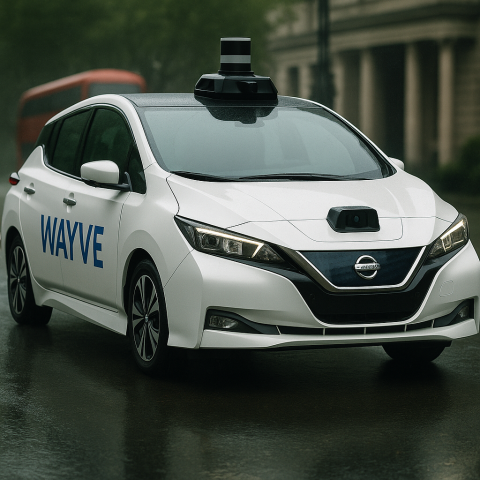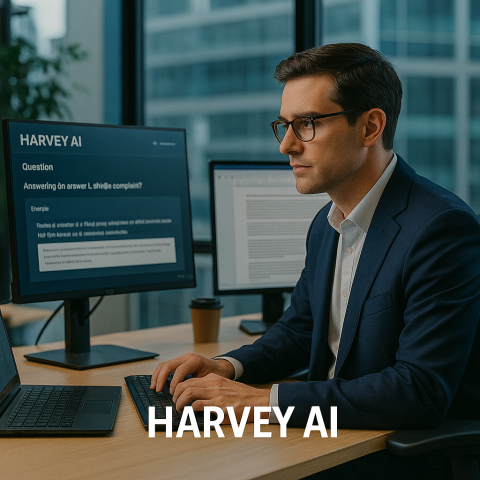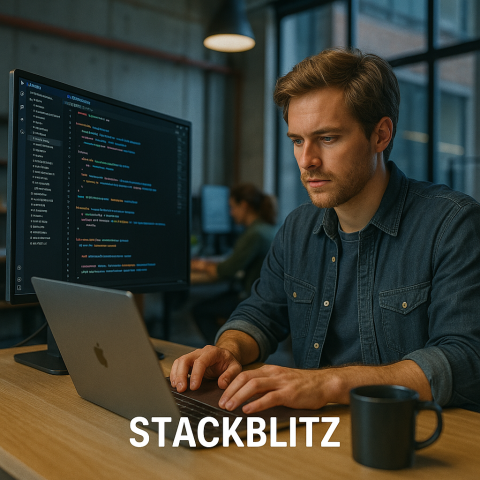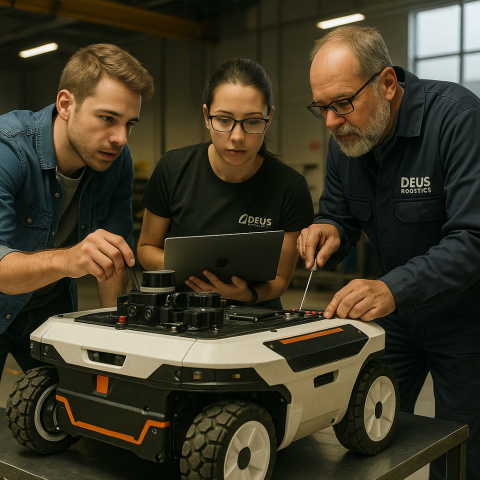Top 10 Startups of the Month: May 2025 Edition

The most promising ventures are redefining industries in the UK and across the globe.
Editor's Note
Everyone wants to be called a startup. Few earn the name.
Somewhere between the buzzwords and the billion-dollar hype cycles, we've forgotten what startups are supposed to do: solve hard problems. Not optimise for exit. Not get famous on LinkedIn.
Build. Break. Try again.
Each month, we dig past the polish to find ventures still in the mud — building something that might actually last.
This is not a listicle. It’s a recognition of those who are quietly shaping the future while everyone else is chasing funding.
From AI-driven solar grids to robots that work like people, the ten ventures below are not perfect. But they are original and worth your attention.
One will be named Startup of the Year. But they all made it here the hard way.
Top 5 UK Startups
1. Wayve (Cambridge)

Pioneering Autonomous Driving with Embodied AI
In 2017, two PhD students from Cambridge — Alex Kendall and Amar Shah — decided to try something different.
Most autonomous driving companies were building digital maps and then teaching cars to follow them.
Wayve flipped that idea: why not let the car learn to drive, like a human does, using raw camera input and machine learning?
Skeptics were everywhere. Investors didn’t get it. Researchers said it wouldn’t scale. But the team kept testing, kept training, and eventually, they had a prototype that could navigate central London without a predefined map.
It caught the eye of Microsoft and SoftBank, and in 2024, they raised over $1 billion.
Wayve is still in development — no robotaxis yet — but their approach has changed how people think about machine learning and mobility. It’s not just software. It’s intuition, encoded.
“What impresses me most about Wayve isn’t just their tech. It’s the fact that they were right, and they were right early. They didn’t follow the map. They burned it.”
2. Robin AI (London)

Rewriting Legal Workflows with Machine Learning
Robin AI started with a simple frustration: legal contracts take too long.
Richard Robinson had seen it first-hand as a lawyer at Clifford Chance.
James Clough, a machine learning PhD, thought they could train a system to help. In 2019, the two co-founded Robin.
What followed was three years of building while persuading big firms to trust a startup with sensitive work. It wasn’t easy.
But the product got better — faster clause analysis, contract templating, risk flagging — and soon clients like Pfizer and UBS were onboard. They now process millions of documents a year.
In 2023, they raised funding from PayPal Ventures and quietly crossed the £7 million revenue mark.
“Robin doesn’t try to ‘disrupt law. It makes the boring parts faster, so lawyers can get back to thinking. That’s why it works.”
3. Open Climate Fix (London)

Making Renewable Energy Smarter with Open Data
Jack Kelly left DeepMind not to cash in, but to do something useful.
In 2019, he launched Open Climate Fix to solve a practical problem: solar power is great — until clouds roll in.
Grid operators need better forecasts.
Jack and a small team built Quartz Solar, a machine learning model that predicts solar output using satellite data and weather models.
They open-sourced the entire thing.
Now, they’re working directly with the UK’s grid operator, cutting forecast errors and helping balance the national energy load more cleanly.
No investors, no fluff — just data, code, and collaboration.
“This is the rare kind of tech startup that would rather be useful than famous. And that, ironically, makes them both.”
4. Quantum Dice (Oxford)

Randomness, Reinvented — for Security’s Sake
You can’t have encryption without randomness.
The better your random number generator, the harder it is for someone to crack your code.
Most systems fake it.
Quantum Dice doesn’t.
Born at Oxford University, their device uses quantum effects to create truly random numbers, not approximations.
It’s hardware-based, tamper-proof, and built for industries where security is life-or-death: finance, defence, government.
Founded in 2019 by Wenmiao Yu and Zhanet Zaharieva, the team has raised over £2 million and is already testing with enterprise partners.
“Quantum Dice doesn’t feel like a startup. It feels like the start of a new standard — the kind that lasts decades.”
5. HIVED (London)

The Courier You Wish Already Existed
HIVED was born out of frustration.
Murvah Iqbal and Mathias Krieger wanted to fix urban delivery — the delays, the emissions, the inefficiency. Their solution?
A 100% electric, zero-emission parcel network. No diesel. No nonsense.
They launched in 2021 with a few bikes. Now, they deliver millions of parcels a year for clients like ASOS, Nespresso, and Zara.
All tracked, all on-time, all green.
They’ve raised over £10 million and are expanding rapidly.
Their secret?
Treating sustainability not as a slogan, but as a logistical advantage.
“HIVED makes sustainability look obvious. It’s like they’re showing the rest of the industry what adulthood looks like.”
Top 5 Global Startups
6. Harvey AI (San Francisco, USA)

Letting Machines Do the Tedious Parts of Law
Winston Weinberg had done his time in big law.
The discovery work, the redlining, the endless revisions. In 2022, he left it all to co-found Harvey with Gabriel Pereyra, an AI researcher from DeepMind.
Their goal: build a system that could handle the repetitive grunt work of legal practice, not replace lawyers, just unchain them from the inbox.
It started slow. The legal world doesn't warm up to outsiders quickly, let alone machine learning tools that touch confidential material.
But the team kept building.
They fine-tuned large language models, trained them on case law, and quietly signed pilot deals with top firms.
Then PwC came knocking. And then Sequoia.
By spring 2025, Harvey had raised $250 million and was valued at $5 billion.
“There’s a humility to Harvey that I find refreshing. They’re not promising revolution. They’re just making the hard parts tolerable — and that’s exactly what the profession needs.”
7. Beyond Imagination (USA)

Robots That Look You in the Eye
It sounds like sci-fi: humanoid robots doing delicate work in clean rooms, factories, maybe even hospitals.
But to co-founders Ray Kurzweil and Harry Kloor, this is less a fantasy and more a matter of timing.
They’ve been working toward this since 2018.
Their prototype, Beyond Bot, doesn’t just follow instructions. It learns, adapts, and collaborates.
In 2024, it completed its first pilot projects in semiconductor assembly and pharmaceutical production — industries that demand not just automation, but awareness.
Investors noticed. In May 2025, Beyond Imagination closed a $100 million round.
The team is now scaling manufacturing and refining software in parallel.
“This is robotics with a memory. If industrial automation is a train, Beyond is the switch track that finally lets it turn corners.”
8. StackBlitz (USA)

Build Apps Like You Write Notes
Eric Simons and Albert Pai never meant to go head-to-head with giants.
They just wanted to make building software feel less painful. In 2017, they launched StackBlitz — a browser-based dev environment that loads in seconds, doesn’t need setup, and works offline.
The dev world loved it. But things got serious in 2024, when they released Bolt, an AI co-pilot that builds full apps from simple prompts.
A dashboard? A blog?
An e-commerce checkout? Just type it in.
Within a month, they hit $4 million ARR.
By spring 2025, it was ten times that. StackBlitz was no longer a niche tool. It was where coding conversations started.
“StackBlitz didn’t dumb anything down,” says Stephen Jones. “They just made the tools feel like they belong in 2025 — not 2005.”
9. Deus Robotics (Ukraine)

Warzone-Born Automation
You don’t expect a robotics company to be based in a country at war.
But Deus Robotics never followed the script. Launched in Kyiv in 2018 by Pavlo Pikulin, the company was already working on warehouse automation before everything changed in 2022.
The war forced them to adapt — not just operationally, but philosophically. They doubled down on resilience, mobility, self-repairing systems.
In 2024, they moved part of the team to Western Ukraine and opened an office in Poland. The tech never stopped progressing.
Now they’re entering Western Europe with $3 million in new funding and contracts signed in the UK and Germany.
Their autonomous warehouse robots are fast, modular, and rugged.
“Deus Robotics isn’t just building machines. They’re building proof that ingenuity outlives crisis.”
10. Graph Therapeutics (Austria)

AI That Talks to Cells
Most biotech startups build models and hope they align with biology.
Graph Therapeutics did the opposite.
Founded in 2024 by scientist Gregory Vladimer and data engineer Robert Sehlke, the company started with live immune cells from real patients — and asked what they were trying to say.
Using a proprietary AI framework, they map out how immune systems behave under different conditions.
The goal? To find new treatments for autoimmune and inflammatory diseases that don’t rely on guesswork or mice.
With €3 million in pre-seed funding and partnerships across Europe, Graph is pushing toward a model where drug development is based on real human data from day one.
“If most drug discovery is telescope work. Graph feels like someone finally picking up the phone and listening.”
Cast Your Vote
Which of these startups deserves the May spotlight? We’re inviting readers to vote on their favourite — not just the flashiest, but the one you’d bet on.
Vote here - https://www.facebook.com/prime.economist
Editor’s Pick
Our editorial choice for May goes to Open Climate Fix. No pitch decks. No slogans. Just real tech solving real-world energy problems, out in the open. That’s the future we want more of.